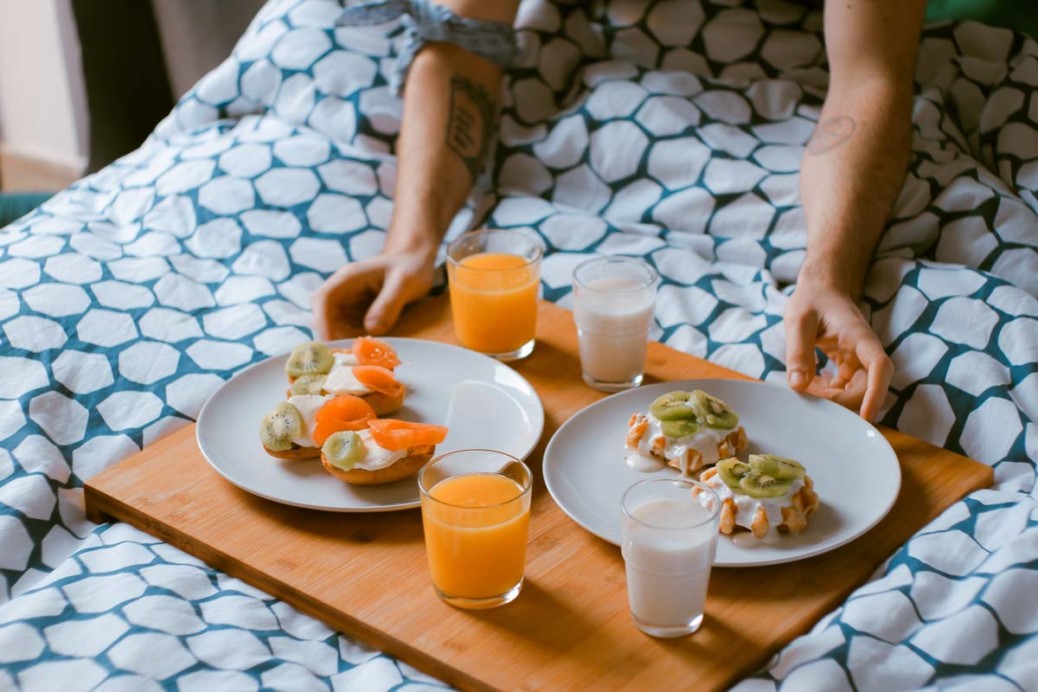Animation: Planning a Baby? Here’s What to Eat and What to Avoid
Healthier mums have healthier babies! Nail your nutrition now to feel as good as you can and prepare for a healthy pregnancy
7 min read
 Conception – Article by
Conception – Article by 
Planning a Baby? Here’s What to Eat and What to Avoid
In a hurry? Watch our summary animation below or jump straight to the full article if you want more detail.
At some point in your childhood, you probably sat through the toe-curling experience of your parents explaining the biology behind baby making. Since then you’ve seen hundreds of Hollywood portrayals and have probably done some pretty good experimenting of your own…
But baby making isn’t just about the physical act. If you’re thinking about trying to get pregnant or are already actively trying, there are other ways to help boost your chances of conceiving.
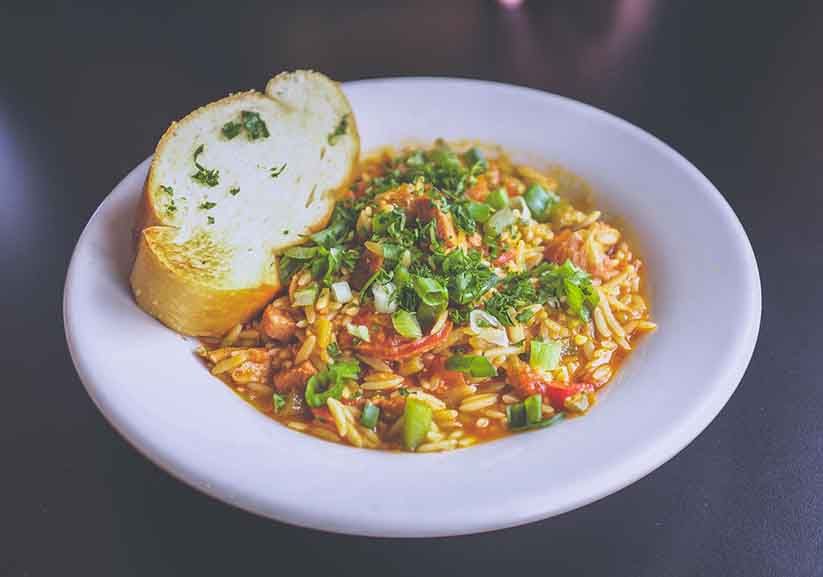
Like eating healthily before you’re even pregnant. A varied, well-balanced pre-pregnancy diet lays down stores of nutrients, making a great foundation for a healthy and happy pregnancy.
In this pre-pregnancy nutrition guide, we’ll look at what you and your male partner should be eating, and avoiding, which could help increase your chances of falling pregnant. If you’re keen to explore more about preparing for pregnancy, check out our guide to mental and emotional preparation.

Start with a healthy pre-pregnancy weight
By being a healthy weight for your height, you’re giving yourself a great shot at pregnancy. That’s because being over- or underweight can impact on your chances of conceiving.
Plus, weight issues can affect you and your baby’s health in pregnancy and beyond. If you’re underweight, your baby’s at risk of having a low birth rate and a range of health problems as they grow.
If you’re overweight, you might be more prone to complications once you’re pregnant, like gestational diabetes, pre-eclampsia and even miscarriage.
There’s plenty of support to help you manage your weight. Visit your GP who can put you in touch with dieticians and others who can help.
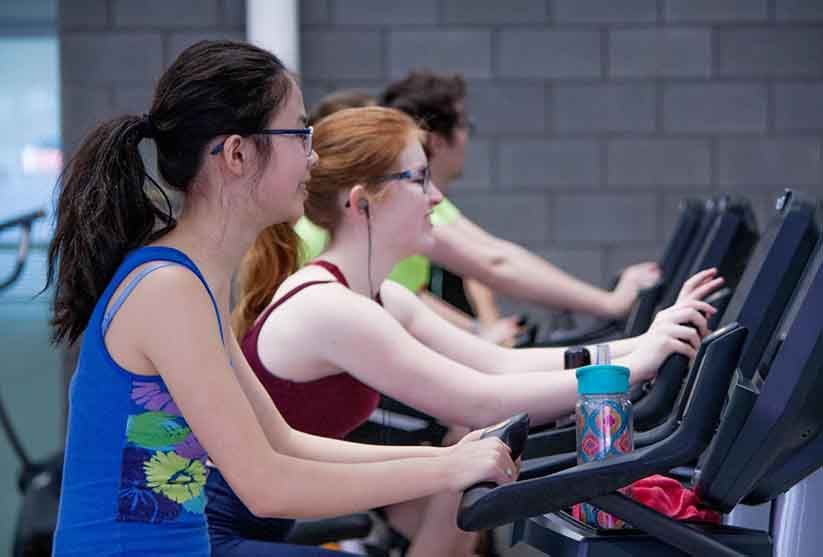
What to eat when you’re trying to get pregnant
It’s always a good time to improve your diet – a healthy diet is important both before and during pregnancy.
Eating healthily when you’re trying to get pregnant is similar to any healthy balanced diet. Think plenty of nutrients from brightly coloured fruit and veg and quality sources of protein.
A great pre-pregnancy diet includes:
- At least 5 portions of fruit and veg a day. Fresh, frozen, canned or dried all count.
- Main meals based around wholegrains and potatoes for the carbs and fibre. Tuck into wholemeal bread, brown rice, wholegrain cereals and pasta.
- Protein at each meal, such as lean meat, fish, eggs, beans and lentils. Try to eat at least 2 portions of fish a week.
- 2-3 portions of dairy a day, like milk, yoghurt and cheese.
- Iron-rich foods throughout the day, such as red meat, poultry, pulses, green leafy veg, eggs, nuts and iron-fortified breakfast cereals.
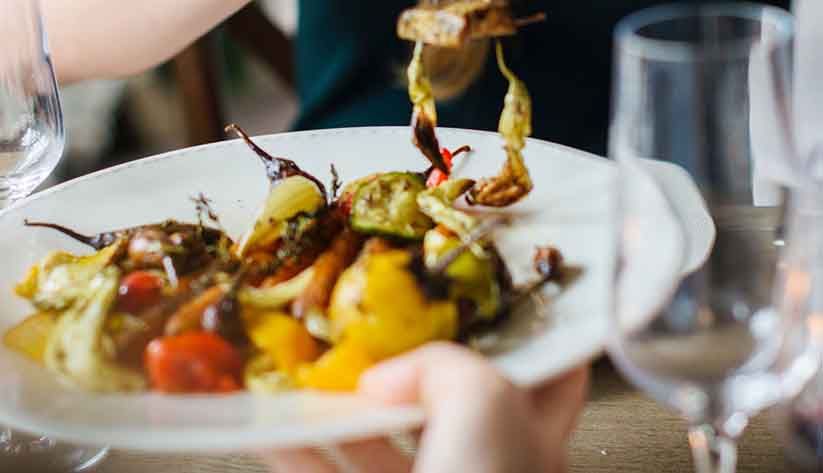
Getting plenty of iron now will help build up your iron stores for when you’re pregnant. You absorb more iron by eating vitamin C at the same time. Add fruit to your cereal, drink vitamin c-enriched squash with dinner, or serve up veg and salad with your main.
If you can, try to eat organic meat and produce. It could reduce your risk of exposure to chemicals and pesticides.
What about supplements?
Ideally, you’ll get all the nutrients you need from your food. But there is one supplement you should be taking: folic acid.
With a well-balanced diet, you shouldn’t need a general pre-pregnancy multi-vitamin. If you’d like to take one, make sure it’s suitable for use in pregnancy and doesn’t contain vitamin A or fish liver oil. Both can be harmful to a developing baby. If you’re taking individual supplements, like folic acid, have a chat to the pharmacist about your multi-vitamin to make sure that you’re getting the right total amount of nutrients.

Vitamin D
Because of the harsh sun here in New Zealand, we’re super sun safe. All the sunscreen we slap on means that some of us have low vitamin D levels – our bodies rely on sunlight exposure to meet our vitamin D requirements.
Vitamin D deficiency isn’t great for baby and can cause rickets which might result in bowed legs and knock knees. To up your vitamin D levels to meet your, and your future baby’s, needs, go outside in the sunshine without sunscreen on. Aim for times when the sun isn’t at its strongest – early morning or late afternoon. You want to keep your sun exposure to a small amount; your skin shouldn’t redden or burn.
There are foods that contain vitamin D, like egg yolk, oily fish and fortified breakfast cereal, but it’s hard to get enough vitamin D from diet alone. If you’re not getting enough, your GP may suggest a supplement.
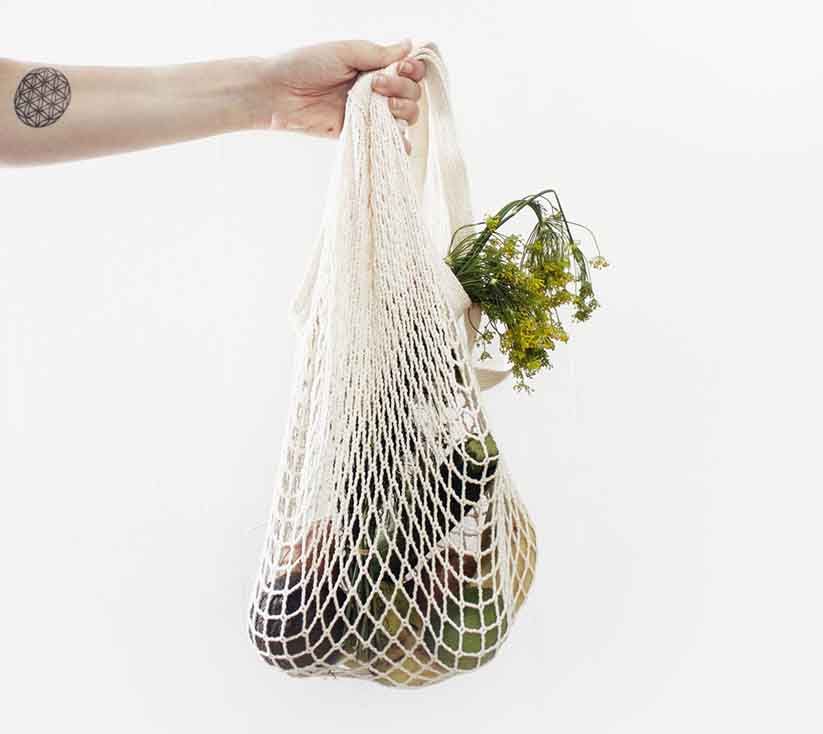
What to avoid when you’re trying to get pregnant
You could steer clear of food and drinks that aren’t safe in pregnancy. By doing this, when you do fall pregnant, you’ll know you haven’t consumed anything that could harm your baby.
Food and drink to avoid includes:
- Alcohol. It’s best to stop drinking if you’re trying to get pregnant. Check out our alcohol in pregnancy guide for more information.
- Caffeine. Although there’s no clear evidence that caffeine affects your fertility, too much caffeine when you’re pregnant can be harmful to baby. Cut your intake now so you’re used to reduced caffeine when you’re pregnant. Try to stick to 200mg of caffeine a day. That’s 2 mugs of instant coffee or 3 mugs of tea.
- Vitamin A. You’ll find this in liver and liver products (like pate and sausage), and fish liver oil.
- Shark, swordfish and marlin. Limit oily fish, such as mackerel, sardines, salmon and trout, to 2 portions a week.
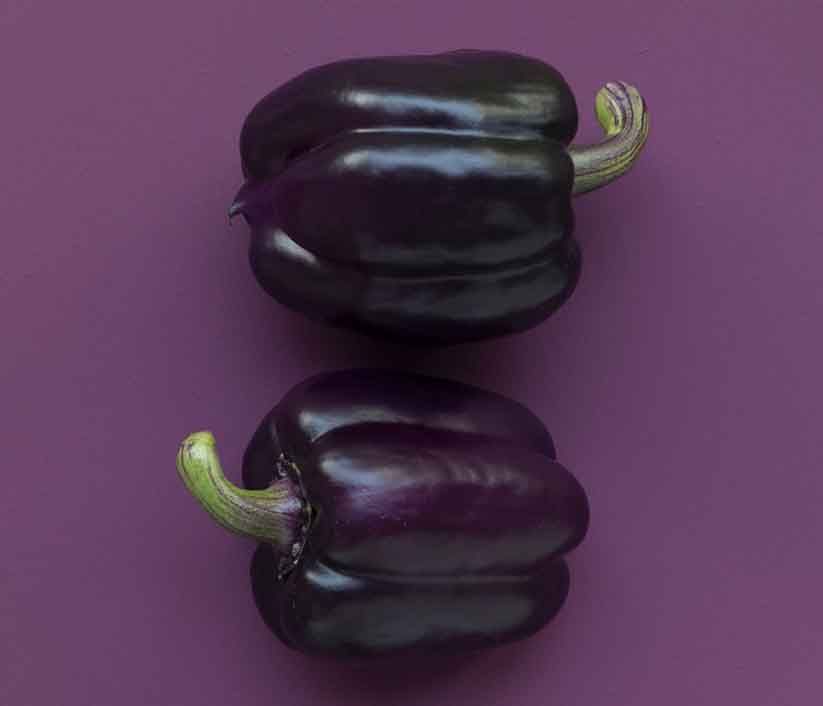
- Soft, mould-ripened or blue-veined cheese, including brie, camembert or Danish blue. Hard blue cheese, like stilton, and non-mould-ripened soft cheese, like cream cheese and cottage cheese, are still on the menu.
- Anything with an increased risk of food poisoning. Avoid raw or rare meat, fish and shellfish, undercooked eggs and unwashed fruit and veg.
- Deli foods, like salads and ham because of the risk of listeria.
Cakes, lollies, chocolate, fizzy drinks and fast food are full of fat, sugar and salt and low in nutrients. Rather than avoiding, indulge and enjoy occasionally – weekly or monthly, not daily.
Boosting male fertility
There is plenty that dad-to-be can do to prepare for parenthood too. Like eating a healthy diet and getting plenty of exercise to help keep sperm in tip-top shape. Being a healthy weight is a great starting point and can improve the chances of conception.

Fertility diet for men
Men hoping to be dads should tuck into a diet as balanced, varied and nutritious as mum-to-be’s. Specific nutrients found in a healthy diet are important to male fertility. There’s selenium which is needed to make healthy sperm, and zinc for healthy testosterone levels. There’s also omega-3 fatty acids which help produce prostaglandins – essential for making sperm.
Try to eat a wide variety of foods from all the food groups each day. This includes:
- At least 5 portions of different fruit and veg – fresh, frozen, canned or dried.
- Wholegrains and potatoes for fibre, carbs, vitamins and minerals. Eat wholemeal bread, brown rice and wholegrain pasta and cereal.
- Protein in every meal, like lean meat and fish, eggs, beans and lentils. Aim for at least 2 portions of fish each week.
- Some low-fat dairy goods, including semi-skimmed milk, yoghurt and cheese.
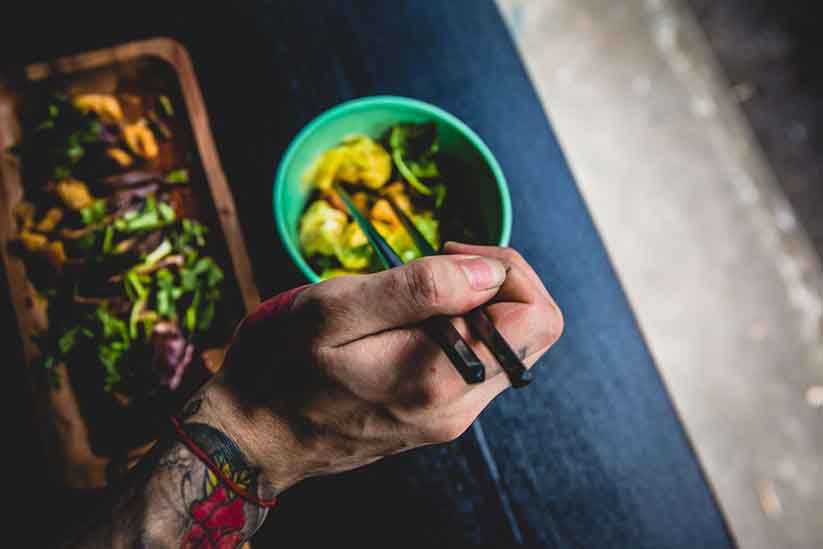
Do men need supplements?
Aim to get all your nutrients from a healthy, balanced diet. You’ll find plenty of good stuff in food, including zinc and selenium – those minerals essential for producing sperm.
You’ll find zinc in:
- Meat.
- Shellfish.
- Dairy foods.
- Bread and cereal products.
Selenium is in:
- Brazil nuts.
- Fish.
- Meat.
- Eggs.
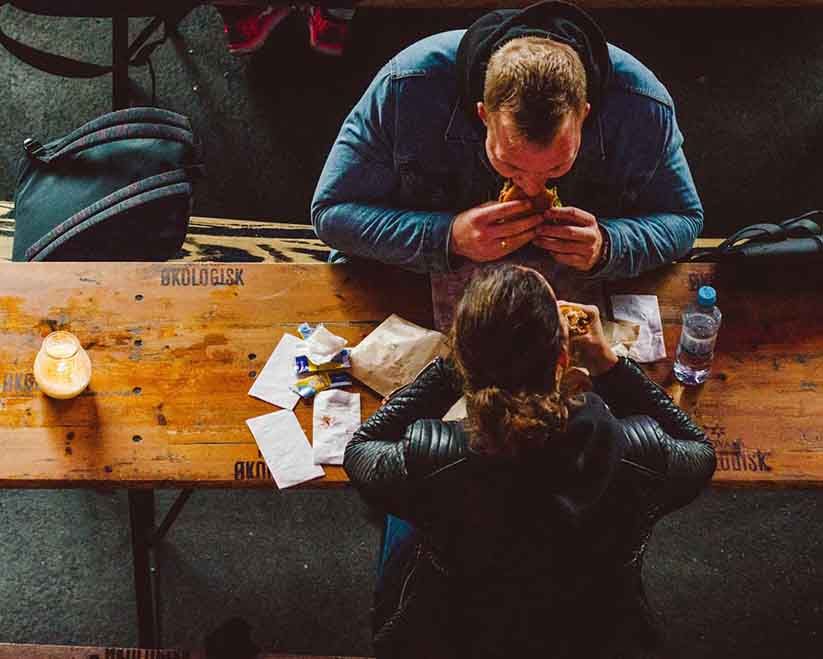
What men should avoid
Excessive alcohol may affect sperm quality. Join forces with the mum-to-be in stopping drinking alcohol while you’re trying to conceive.
Stopping smoking can also increase your chances of conceiving – smokers are more likely to have poorer quality sperm and passive smoking is dangerous to partners, especially pregnant ones.
Now you’ve got an overview of what to eat (and avoid) to support your chances of getting pregnant, explore the benefits of folic acid and if you are prepared for pregnancy.
